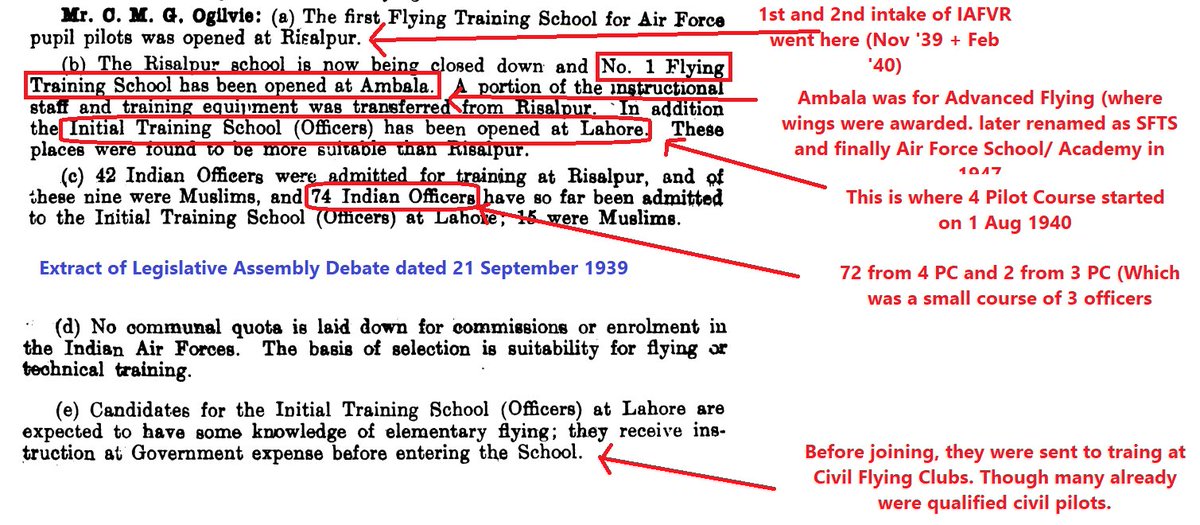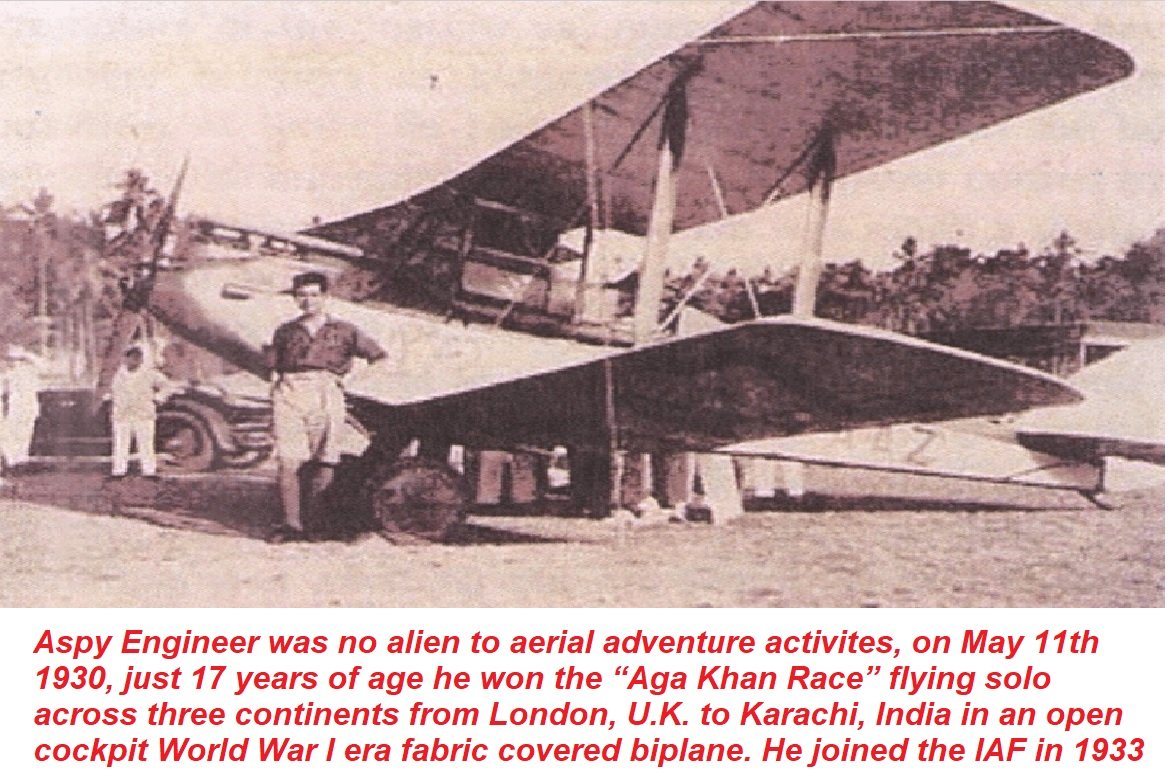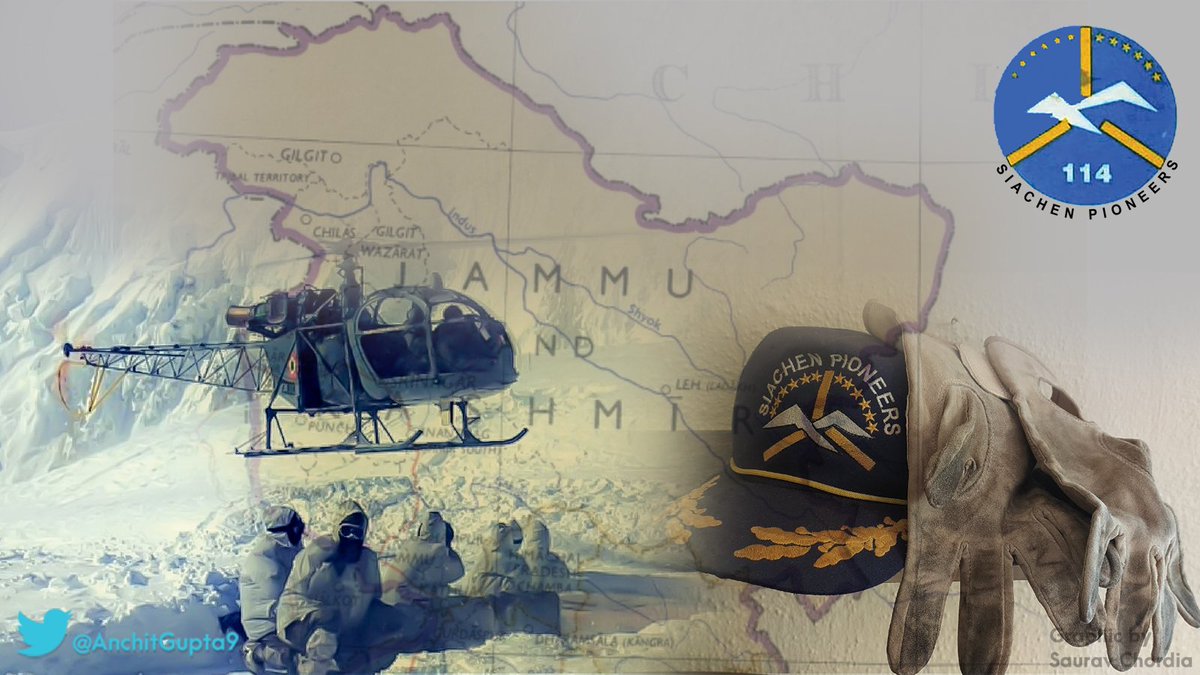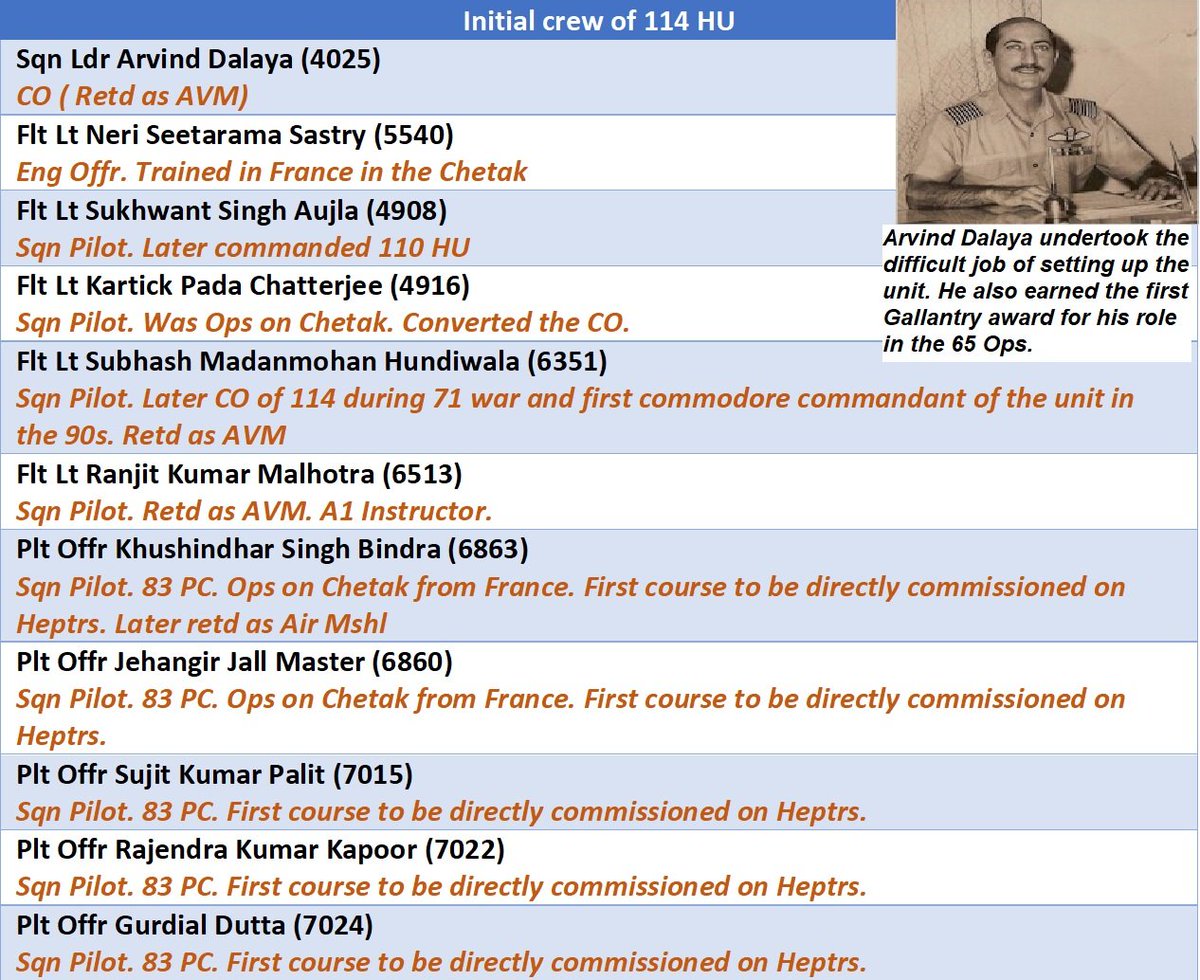
72 men, 22 of whom died in service. Battle-hardened over Germany, Arakan, Burma, NWFP, Kashmir War, Goa ops, 62, 65, 71 war. In 1971 –all AOC-in-Cs & all PSO’s to the chief – were from this single pilot course. This is the 4th pilot course (4 PC) of @IAF_MCC . #IAFHistory (1/19) 

The first 22 officers commissioned in the IAF between 1932 and 1939 were all trained outside India as no facilities existed in India. Hence these officers did not carry any “course number”. In 1939, the govt took a call to raise an IAF Volunteer Reserve with WWII outbreak. 2/ 

1 & 2 PC had about 35 officers show up at Risalpur, the 1st IAF trg setup for pilots. But that was found inadequate, and a new school was setup at Walton, Lahore. It is here that 4 PC showed up, as the first course at the location 3/ 

4 PC was the largest intake IAF had pre-independence. 72 showed up & were made Acting Pilot officers. We only have 60 names – 51 as pilots & 9 as observers. This was an era when service numbers were not yet in vogue 4/
https://twitter.com/AnchitGupta9/status/1500855452279603202
Within a month of joining Walton, 24 of the 72 officers were sent to UK for trg at the height of the Battle of Britain. The pictures from this visit would later be widely published 5/
Reaching UK on 8 Oct ‘40, they were given a welcome message by the Air Minister, Sir Archibald Sinclair. After completing basic /adv/ conversion trg , they spread out among the Sqns in Fighter, Coastal & bomber Command. Eight of them were killed in training and operations. 6/ 

The last of the 24 to pass away was MS Pujji, who died in 2010, having settled in the UK. He had received a DSO as Flt Cdr of 4 Sqn during Burma Ops in 1944. This video by @guardian has him narrating the tale 7/ theguardian.com/world/video/20…
His statue was put up in 2014 by the Gravesend community in kent and was intended to represent all the service personnel from across the world who have fought for Britain in conflicts since 1914. 8/ 

Shiv Dev Singh, one of the 24, participated in the Middle East ops & later in Burma with 6 Sqn. After an illustrious career, he retired as the Vice Chief in 1973 reaching the highest post by the 4th Pilot Course, at that time touted to be a top contender to be the Chief. 9/ 

Kali Prasad Chaudhary, Rustom Dastur, CP Khosla, Ali Raza Khan, manmohan Singh were amongst those who perished in action. In a sad twist, Anandaraj Samuel Gnanamuthu was killed with 32 Sqn, RAF & a couple of months later his brother from 5th PC was killed with 1 Sqn in NWFP. 10/ 

The 48 who were in India went through the first structured trg – Finishing up in Walton in Dec 40 & then to Ambala for Adv trg before hitting the sqns in May ‘41. Amongst the only surviving pilots is DS Majithia 11/
https://twitter.com/AnchitGupta9/status/1552128391129624577
One of the brightest of the lot was Eric Wilmot Pinto. He was considered a born leader and loved by one and all. He commanded 4 Sqn, 3 Wing, AFA and was the AOC-in-C of the Western Air Command when he died in a tragic crash in 1963. Many believed he would have made chief. 12/ 

Ranjan Dutt had immense opl experience. After serving with 32 Sqn, RAF he became the first Indian to earn to join the Fighter Leader Course (Top Gun) in UK and returned to be Flt Cdr of 10,8 & 2 Sqns and commanded 1 Sqn. Later retiring as AOC-in-C Eastern Air Command. 13/ 

Air Mshl Hari Chand Dewan was an officer who did it all. Flew in Burma. Flt Cdr of 8, 7 & 12 Sqn. CO Comm Sqn, AFA & Poona AFS. He was AOC-in-C of Central, Eastern and Maintenance Command followed by Deputy and Vice chief posts before retiring in 76, the last from the course. 14/ 

Karori Lal Bhatia was destined for greatness but his life was cut short by illness at 34 as Gp Capt. He had commanded 12 sqn during the Kashmir War, earned a VrC. He had been given imp assignments as Stn Cdr 4 Wing, Director of Personnel and Org just before he passed away. 15/ 

Air Cmde Jagdev Chandra distinguished himself as an ace flying instructor, the first in the IAF, spending years in the flying training establishment and policy-making of the IAF 16/
https://twitter.com/AnchitGupta9/status/1488740896879222784
Air Marshal Yeshwant Vinayak Malse and Air Marshal Hirendra Nath Chatterjee, both distinguished pilots, contributed immensely to the growth, development, and leadership of the IAF during the 1950s and 60s, including in building training and strategic thinking. 17/ 

The most decorated of the entire course was undoubtedly Air Marshal Minoo Engineer. Earning a DFC in WWII and MVC in Kashmir War 18/
https://twitter.com/anchitgupta9/status/1500110788316459010
In Aug 71, the Course celebrated its 31st Anniversary. Numerous other officers made it to the Air ranks. A full listing of the course and career records of each of its officers can be read here - bharat-rakshak.com/IAF/Database/C…
19/19
19/19

• • •
Missing some Tweet in this thread? You can try to
force a refresh


















